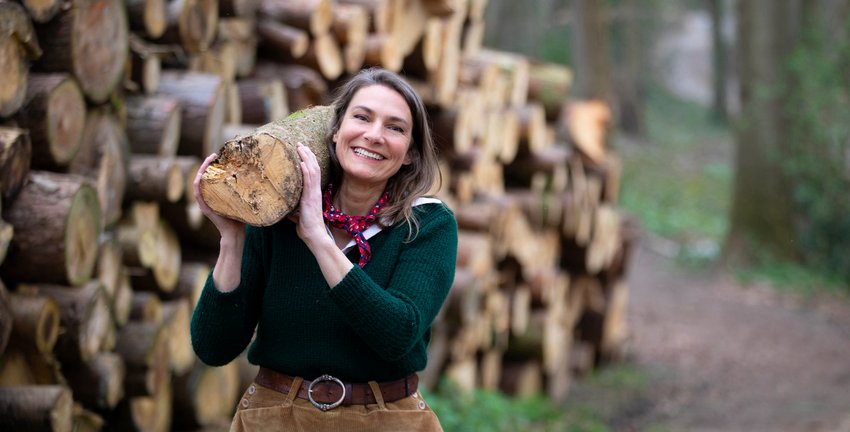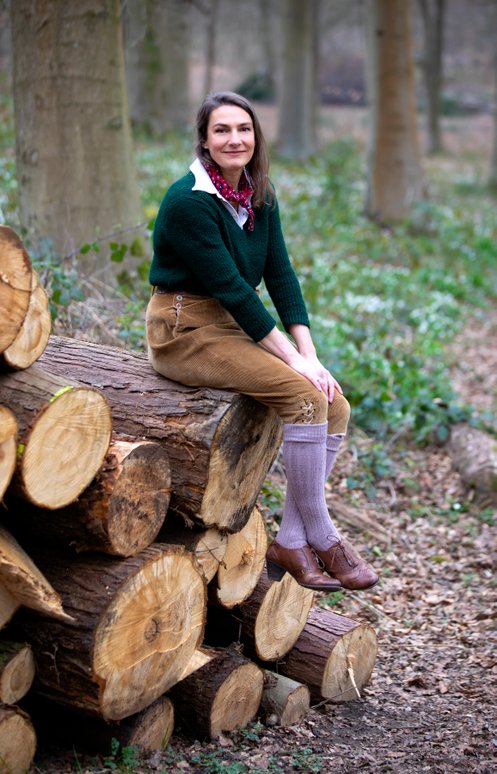
Joanna Foat, speaker, author, researcher and environmentalist, uncovered the forgotten history of the Lumberjills in the Women’s Timber Corps in WW2. She is the author of two books, has given over 100 public talks across the UK and wrote the Lumberjills exhibition for Forestry England.
Joanna has been interviewed on BBC Radio 4 Woman’s Hour, BBC TV’s How We Won The War, Walking Wartime Britain, Great British Menu and Dan Snow’s History Hit Podcast among others.
Joanna first discovered the Lumberjills while working for the Forestry Commission in 2012. With a wild, adventurous spirit and passion for forests, she felt a connection with their story.
Like most people, she had previously never heard of the women who took on tough ‘men’s work’ foresting and logging during WW2. She was fascinated by their story and wanted to find out what life was like for the Lumberjills in the 1940s. Joanna travelled the country to meet over 60 original Lumberjills and interviewed them about the lives during the war.

Joanna grew up in Surrey, England, and used to help her Dad work on the car, tinker in the shed and mow the lawn. She also loved climbing trees, chopping up wood for the fire and one year her father bought her an axe for Christmas.
She studied Psychology at Hull University and has an Msc. in Occupational and Organisational Psychology from Surrey University. With a love for the great outdoors, forests and wildlife, she now works in communications for environmental organisations alongside writing books about the Lumberjills.
Joanna said: ‘I was shocked to discover how the women were treated at the beginning of the war. They were laughed at for their enthusiasm to offer their services, regarded as ornamental rather than useful and many timber merchants refused them work as they did not want women women taking over the jobs of skilled men.
'In fact, the Lumberjills not only pioneered a new fashion for women in trousers, wearing jodphurs, but they also proved that women could carry logs like weight-lifters, work in dangerous sawmills, drive huge timber trucks and calculate timber production figures on which the government depended during wartime.
‘These women have been great role models to me and I hope to inspire women of all ages with the strength, courage and determination of the Lumberjills. Out in the forests free from the restrictions imposed on women by society, they realised they could achieve anything they wanted to.’
© Copyright Joanna Foat 2024